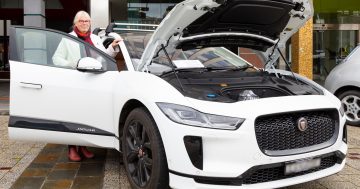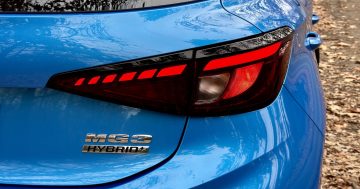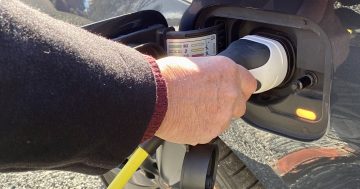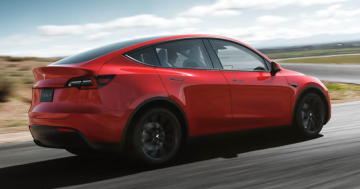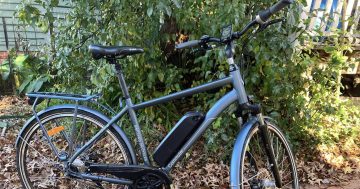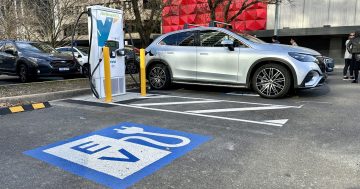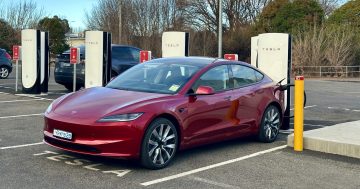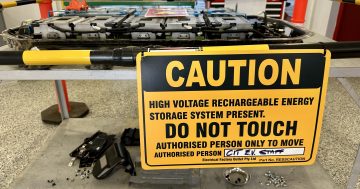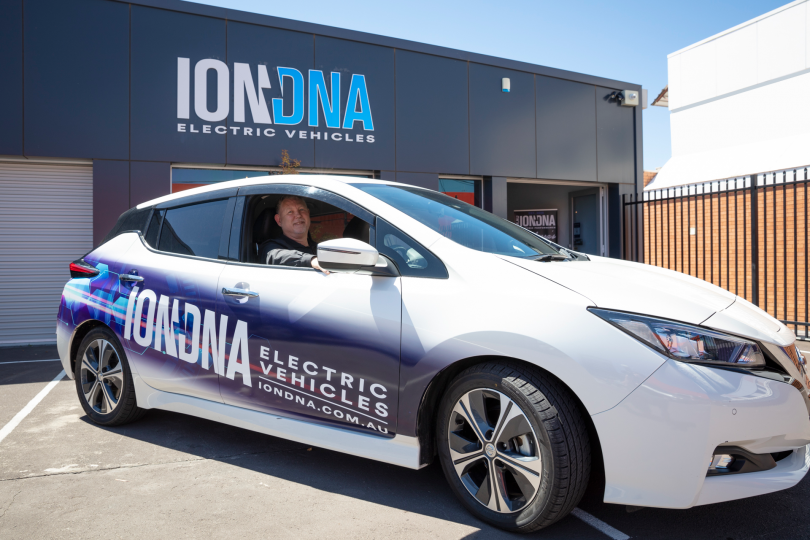
Rob Ogilvie in an electric car at Ion DNA. Photo: Thomas Lucraft.
A burning question: how did a committed rally driver and petrol head become Canberra’s champion of electric vehicles?
In one word: excitement.
And based on his history, if Rob’s excited by the performance of electric vehicles, everyone will be.
These days, Rob Ogilvie is the president of the Registered Automotive Workshop Scheme and owner of Canberra’s leading electric vehicle dealer Ion DNA, but Rob’s past life is steeped in petrol engines.
He’s worked in motor vehicle repairs, tyre shops and, more recently, a family business fitting out Jucy Rentals backpacker campervans. As a youth, he roared around Mount Panorama.
Rob is a Canberra local, growing up around the Belconnen area. His father taught automotive at CIT for many years so, as Rob explains, cars are in his blood and have always been part of his life.
While working various jobs in the motor vehicle industry, Rob’s weekends also revolved around cars. He was a highly competitive driver in the Australian Rally Championships and the Australian Production Championships, “one skill I certainly have in life is being able to drive”.
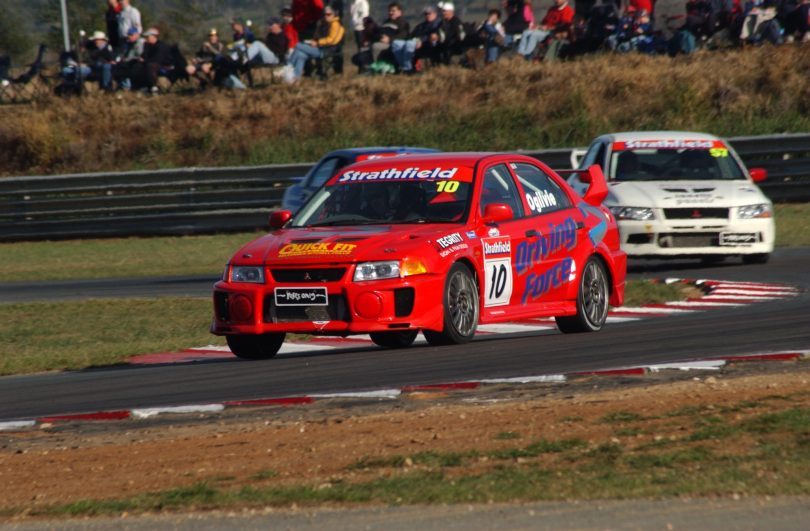
Ion DNA founder Rob Ogilvie was also a competitive motorsport driver. Photo: Supplied.
In 2014 Rob joined the Registered Automotive Workshop Scheme (RAWS), the peak body for automotive dealers who import and supply used specialist or enthusiast vehicles to the market in Australia. He became president in 2017. It soon became apparent to Rob that the future for cars was in electric vehicles – EVs as those in the industry call them.
Rob has been active, advocating for many in the RAWS industry to move to environmentally friendly vehicle importation and working with the Federal Government to allow that sector to grow.
“The government was very clear, telling me that we need to push our members towards emission-friendly vehicles. I knew the market would change, but it wasn’t until I was on a trip up in Cape York that I decided to put my efforts into the future and sell electric vehicles in Canberra.
“Someone had to lead the way, so I decided to step up,” Rob said.
Rob opened Ion DNA in Fyshwick in 2018, with their formal opening just before the Canberra hailstorm, fires and COVID-19 hit. But despite the less than ideal market conditions to start a new business, Rob geared up to deliver what he sees as a missing link in EV sales in the Capital region – information and choice.
“The ACT Government is supporting EVs, offering a range of incentives, but when it comes to buying a vehicle, most people’s knowledge of the market is limited to high-end Tesla models and think all EVs are expensive, but the industry has matured way past that point,” he says.
Ion DNA sells a range of new and second hand EVs and Rob is on hand using his deep knowledge of the industry to help customers make the right purchase for their needs.
“While EVs are essentially pretty simple machines, they really are plug and play, we can help with explaining the differences across brands, technical details and service requirements,” Rob says.
One of the joys of EV ownership, apart from not having to buy petrol anymore, is that with very few moving parts, they don’t need much servicing.
Rob says he knows of an EV owner who actually forgot to have their car serviced for nearly four years and only brought it in to check to see if it was still OK. It was.
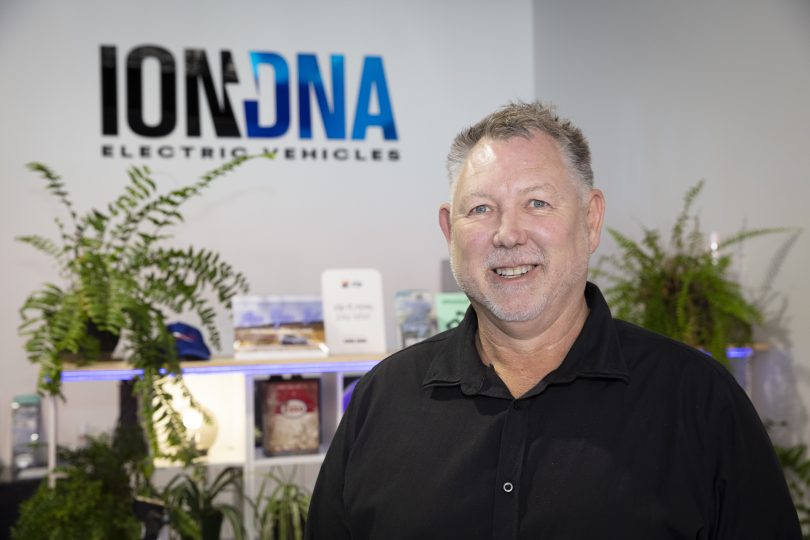
Rob Ogilvie, owner of Ion DNA. Photo: Thomas Lucraft.
Rob suggests purchasing a second-hand vehicle with a battery with low-hour use instead of waiting for those who are holding back purchasing an EV thinking that battery technology will go out of date.
“That way you can enjoy driving the car for a few years and then either replace the battery or upgrade to a newer vehicle,” Rod says.
“The health of an EV battery is similar to the engine condition in a petrol vehicle. If you buy a good second-hand car from a reputable dealer you will not lose much in depreciation.”
Ion DNA has access to a wide range of EVs, including Honda, VW Golf, Audi, Mini, Kia, Nissan and even Porsche. They also stock and sell electric scooters and e-bikes.
The million-dollar question remains, does Rob enjoy driving an EV as much as a car with a combustion engine? He gives an emphatic yes.
“They are just as intoxicating. Most people get behind the wheel and start saying ‘wow’ as soon as they put their foot on the pedal. An EV will raise the pulse for sure; the acceleration is amazing.”
For more information on electric cars and scooters, visit Ion DNA.












